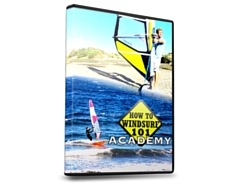This is a post I wrote a while back for another blog in which I detailed some important features people whould have who were aspiring to become windsurf instructors. However, you can also read this as a bit of a guide as to what to look for in a windsurf instructor in order to have the most out of a lesson with them.
9. Charismatic
This is secondary but in many places it is the responsibility of the instructors to get their own students meaning it is up to you to approach people and offer then the opportunity to experience the awesome sensation that our particular sport brings with it. I’m just saying that being charismatic in this case helps. It is also more likely for a student to return if they felt comfortable with their instructor.
8. Speak the language of the student
I don’t speak Russian to the extent of holding a conversation. I do however know a number of phrases along the lines of “front arm straight”, weight on the back foot”, “back straight and other basics along these lines. It reduces the likelihood of your student misunderstanding a movement of yours that they must imitate.
This might not be a crucial necessity but it helps a lot if you can explain something in words while the student puts it into practice without having to look at you so they can concentrate on the manoeuvre or conditions (like waves or gusts).
Of course we do not depend on auditive communication only, whats more, the student will learn faster if you make them use all their senses, but being able to communicate in the same language will avoid them to focus on the wrong thing or get a different message.
7. Know the sport inside out
You have to be able to explain every reaction of the kit caused by any alteration done by us, be it practical, like why the board turns when we move the sail, or technical like what happens when we tense the downhaul or what the purpose of the loose leech is.
6. Loud voice
Wind and waves make a hell of a lot of noise and it is likely that we are going to be situated at some distance from the student meaning that it is very easy to have our voice drowned out. So in order to be able to transmit the information to our student we must be able to raise our voice considerably. Of course we can fall back on useful devices such as megaphones and helmets with walkie-talkies but the cheapest option is to train our voice.
5. Skills in the sport
If you go to the gym to choose a personal trainer, who are you more likely to choose: the fat dude or the lean mean machine? Be able to not only windsurf to the level you are teaching but somewhat beyond it. If you are teaching the basics, I think you ought to be able to do a waterstart. If you are teaching the waterstart, you should know how to jybe consistently. You get the idea.
4. Inventive – Improvising ability
It is unlikely that we will have all lessons go smoothly all the time. It is up to us to make sure beforehand that as few unexpected setbacks as possible occur. A little preparation goes a long way. Nonetheless, we cannot plan and avoid everything and so it is convenient if we are quick on our feet and are able to make do with the situation we are faced with. I have had to improvise with equipment when all of a sudden the other instructors had already taken the stuff I would have needed; with knots When a rope snapped; sail swaps on the water when a mastfoot broke … And the list goes on and on. It is good to hear the adventure stories of other instructors as it might apply to you someday or at least will help you to come up with a brilliant solution to a pesky problem.
3. Rescue skills
We are working in an environment in which most people are not completely comfortable and which can result in dangerous situations. We must be able to provide a rescue service in the case of an unexpected accident occurring. I have had mast crack down on students heads, some throwing up because of the waves and others that decided to tell me that they can’t swim as well as they promised once they were on the water. You need to be able to bring back your student to the beach should something happen.
2. Calm under pressure
At some point we will find ourselves in a tricky situation, a bit of a pickle you might say. Off-shore winds, a current pushing to the rocks, a big shore-break, a tired student on top of all this and the list goes on. It is important to remain calm at all times and to NOT PANIC.
Panic leads to our brains switching off logic and relying solely on instinct and the only possible reactions available to us in the face of danger according to instinct is first paralysis and then action (either fight or flight).
Depending on our nature the paralysis phase will last more or less time before we go over into a reaction. However, we can reduce this time frame by feeling less overwhelmed in such a situation by preparing for the experience beforehand. Simulation exercises and good knowledge of the circumstances help us in being more relaxed come the unexpected.
1. Patience
You are teaching people who most likely have never had anything to do with the sport before. Any new skill takes time to get taken in by the body and some people just have more talent than others. On top of this, it becomes increasingly frustrating if not only the task doesn’t work out but also the person teaching you is making you feel like you are wasting their time.
Be patient, be encouraging, and no matter how clumsy your student is, try to find a way to see their struggle as normal or positive as a form of motivation. I have a little advantage in this as I am quite passionate about teaching and already have a natural tendency to be patient and motivating and when that click moment comes in which my student gets the idea of what they are meant to do and how it is meant to feel, I usually end up being more stiked than them.
That is all I could think of for now, if you think anything else should be on the list or have an example of why they are important, please let me know in the comments.
In addition, don’t be or choose an instructor like this guy…






